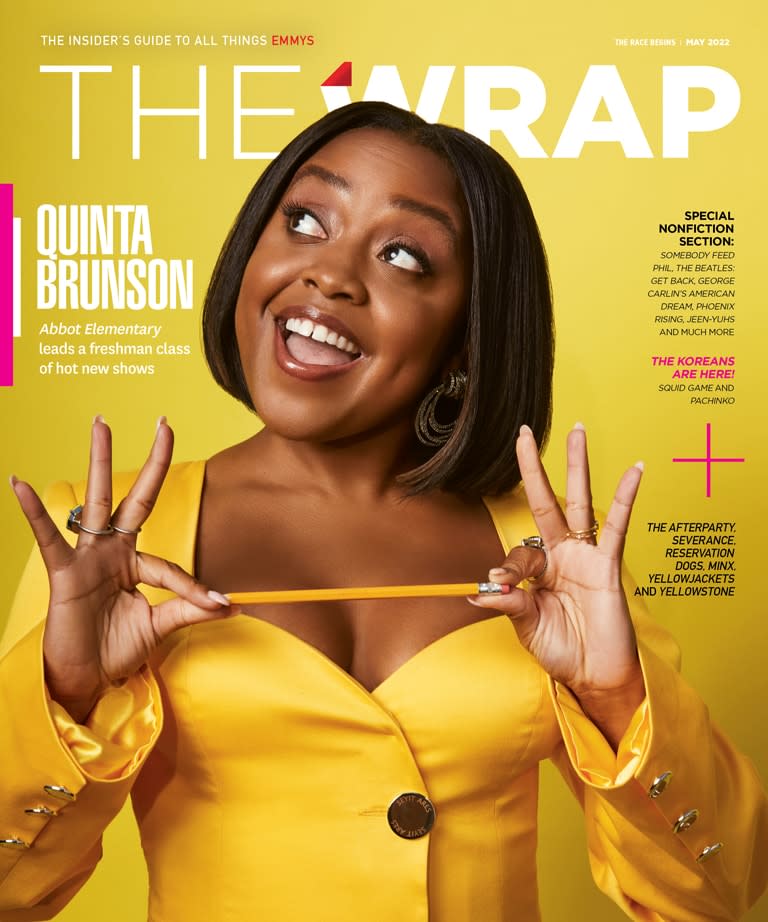Evan Rachel Wood’s Abuse Allegations Against Marilyn Manson Took Her ‘Phoenix Rising’ Director by Surprise
- Oops!Something went wrong.Please try again later.
- Oops!Something went wrong.Please try again later.
A version of this story about “Phoenix Rising” first appeared in the Race Begins issue of TheWrap’s awards magazine.
When director Amy Berg began filming Evan Rachel Wood for the documentary that would become “Phoenix Rising,” she figured she was chronicling an “Erin Brockovich”-type story about women who had survived abuse lobbying for a change to the statute of limitations for those crimes.
“I thought what she was doing was really interesting, testifying in Sacramento for the survivors’ bill of rights,” said Berg, who had known Wood for years and had previously asked the actress if she’d read Janis Joplin’s words for the 2015 documentary “Janis: Little Girl Blue.” (Chan Marshall, aka Cat Power, ended up doing the readings.)
But Berg had no idea that Wood’s story would move far beyond that lobbying effort. At the time when filming began for “Phoenix Rising,” Wood had spoken publicly about the abuse she’d suffered as a young woman at the hands of a powerful man, but she had never named the man.
Also Read:
‘Phoenix Rising’ Film Review: Evan Rachel Wood Doc Shows Celebrity Doesn’t Shield Women From Abuse
While the filming was going on, though, Wood decided to go public and name her ex-boyfriend Brian Warner, better known as rock musician Marilyn Manson, as the one she said had subjected her to years of physical and sexual abuse, including essentially raping her on camera for his “Heart-Shaped Glasses” video. (Warner has denied her accusations.)
“Like any documentary, you think you’re following one thing and then a story starts unfolding, and you have to figure out which direction to go,” said Berg, whose previous films include “West of Memphis” and the Oscar-nominated “Deliver Us From Evil.” “We were loosely following her advocacy work with other survivors for a few years, and then she named him.”
Berg felt that the resulting film, which premiered at Sundance and is now on HBO, warranted two parts. “We were in the edit and it was just impossible to tell her forward-moving story without telling the story of the past,” she said. “And so we started doing that and it seemed more dense than what could fit in a first act of a film. It just evolved into two parts, basically.”
And while it includes footage of Wood and other survivors testifying in Sacramento, “Phoenix Rising”’s most powerful moments are come she speaks openly of her harrowing memories, particularly with other former girlfriends of Warner’s who said they experienced similar treatment.
“It was wrenching in one way, but it was also empowering,” Berg said. “The validation that the survivors got from each other from telling their stories — they were basically finishing each other’s sentences because they all had such similar stories. As heart-wrenching as it was, it was also incredibly inspiring to see those moments.”
Also Read:
Elon Musk Just Made a Crude Joke About His Sexual Misconduct Scandal Because of Course He Did
Wood, she added, was completely open to having cameras present at these times.
“We had incredible access,” she said. “Evan, you know, when she does something, she does it all the way. We did it in a way that was very familiar — she did her own makeup there, it wasn’t a kind of celebrity experience in any way. It was just like making the other documentary that I’ve made in terms of the subjects.”
But that didn’t make it an easy film to put together. “It was dark material, and that was challenging for sure,” Berg said. “It’s hard not to take things like this home with you, especially during a pandemic when you’re working at home and you’re isolated all the time.
“But I really wanted to make sure that people understood the cycle of abuse and could look for the warning signs. And it was satisfying to watch Evan’s journey and to watch her grow as we followed her.”
Read more from the Race Begins issue here.


